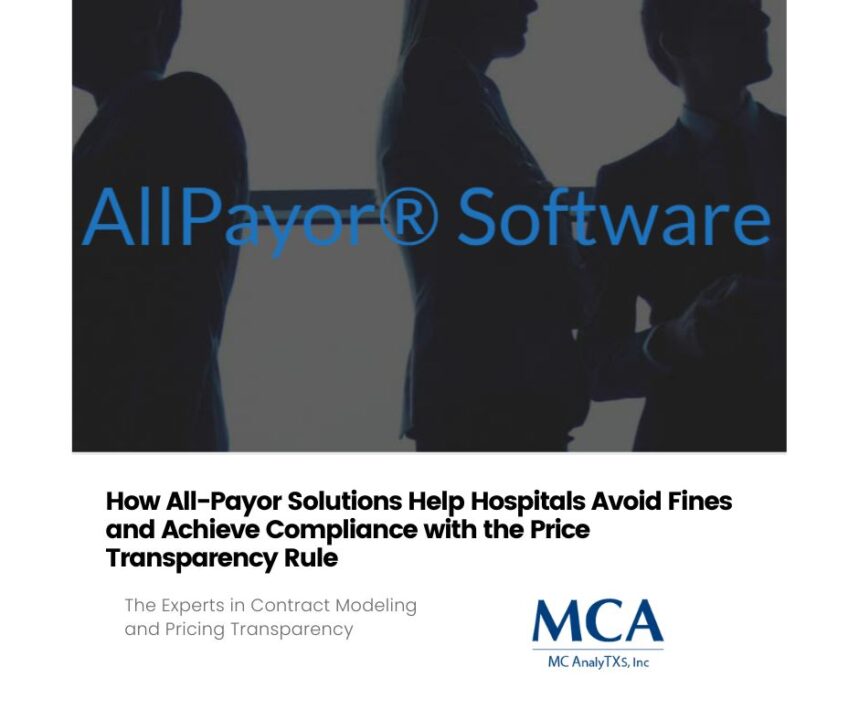
Key Performance Indicators (KPIs) for Healthcare Revenue Cycle Improvement
December 4, 2023
Tighten Your Payor Contracts for A Better Revenue Cycle Management
December 8, 2023Overcoming Reimbursement Challenges from Healthcare Payers to Reduce Mounting Denials and Impact on Hospitals
The healthcare industry continues to face numerous reimbursement challenges from payers that are seriously affecting the bottom line of hospitals and healthcare organizations.
Mounting denials and unexpected payment reductions by insurance companies are threatening the profitability and sustainability of the healthcare industry in a significant way.
These practices have an adverse impact not just on hospitals and healthcare providers, but also on the health and well-being of the patients.
In this article, we will discuss some of the challenges that healthcare payers pose to hospitals and healthcare providers, leading to mounting denials, and offer some solutions to overcome these challenges.
Increased Medical Necessity Denials
One of the most significant challenges that healthcare payers present to hospitals and healthcare providers is increasing the incidence of medical necessity denials.
These denials happen when a healthcare payer decides that a medical procedure or service is not medically necessary.
This decision can be based on many factors, including a lack of clinical documentation, an incorrect coding of the services provided, or an insufficient description of the care provided.
Hospitals and healthcare providers need to tackle this issue head-on by employing a robust, proactive approach to documentation integrity.
They need to ensure that clinical documentation meets medical necessity criteria, the appropriate codes, and a complete description of care provided, ensuring prompt and accurate payment.
Inadequate Contracting
Another challenge that most hospitals and healthcare providers face is negotiating contracting (or lack of it) with healthcare payers.
Often, healthcare payers are non-transparent with their fee schedules or change negotiated rates without prior notification.
This puts hospitals and healthcare providers at a disadvantage and confines them to the pricing structure without an adjustment for inflation.
Hospitals and healthcare providers should focus on negotiating more favorable contracts with healthcare payers, work on building better relationships with payers, be compliant with payer agreements, and ensure payer contract maintenance.
Incorrect Patient Access and Registration Information
One of the foremost challenges that hospitals and healthcare organizations face is incorrect, and incomplete patient data.
This leads to denied or delayed payments, as well as potential missed revenue opportunities.
To address this issue, healthcare providers should invest in advanced registration and eligibility technology that would allow accurate capturing of patient information.
Additionally, they should ensure comprehensive documentation of the patient encounter so that the record looks rational and straightforward to the healthcare payer.
Inadequacy in Staff Training
Healthcare organizations must train their personnel efficiently to handle the numerous challenges they face.
This training should cover important areas like medical billing and coding, documentation requirements, patient discharge procedures, and many more areas that contribute to billing claim denials.
Failing to provide proper training to staff can lead to decreased productivity, low morale among staff, and lost revenue.
To overcome this challenge, hospitals and healthcare providers can invest in continued training and education for their staff to maintain proficiency in their duties.
Appeal Denials
The final stage of the reimbursement process is the appeals process, and this is another critical area that hospitals and healthcare providers should focus on.
Healthcare payers know that most healthcare providers struggle to file successful appeals, and this can be used to their advantage.
Hospitals and healthcare providers should make sure that their appeals are well-documented, and that the appeal process is carefully followed.
Additionally, they should engage experienced professionals who understand the appeals process and have a track record of filing successful appeals.
Conclusion:
Reimbursement challenges from healthcare payers, exemplified by mounting denials, are severe, and can significantly impact hospitals and healthcare providers’ finances.
Healthcare providers must face these challenges by implementing solutions like investing in a proactive documentation integrity program, negotiating more favorable contracts with healthcare payers, investing in advanced registration and eligibility technology, ensuring adequate staff training, and being prepared for appeals.
By doing so, they will reduce the impact of reimbursement challenges and mount successful efforts to forestall mounting denials.
The healthcare industry is critical to the health and well-being of all Americans, and we must all be vigilant in ensuring its sustainability.
To learn more join our webinar on December 14th, at 1 pm CST





